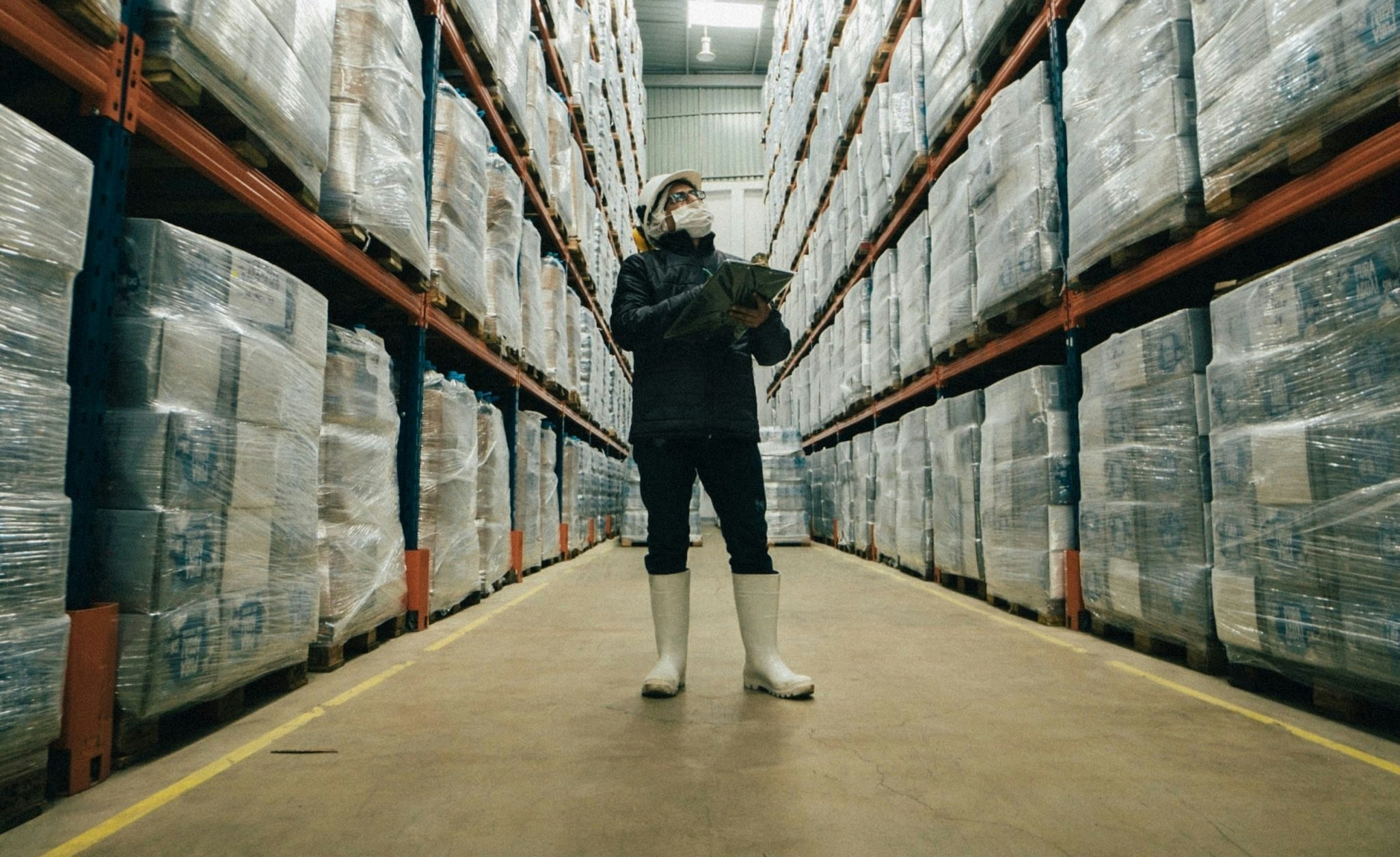While the pandemic fuelled massive growth in ecommerce, persistent supply chain disruptions, rising inflation and deteriorating consumer confidence have caused sales to drop, forcing many ecommerce businesses to go into survival mode.
Ecommerce fulfilment providers — companies that work hand-in-hand with ecommerce brands to manage the warehousing and logistics aspects of the business such as stock management, picking and packing, delivery and returns — have also consequently faced financial pressures.
But while traditional fulfilment providers have struggled, more agile, tech-savvy fulfilment providers have continued to grow, keeping their doors open for aspirational D2C (direct to consumer) brands.
So, we asked the experts what the best way forward is for the sector. Can partnering with these ecommerce fulfilment providers help D2C ecommerce brands grow despite an economic downturn?
Supply chain disruptions
Moving Beans is a UK-based sustainable coffee brand startup and D2C brand which has had to overcome a range of challenges in recent years.
At the start of the pandemic and lockdowns, shipping was really difficult. Even though everyone was shopping online, it was still difficult to source a lot of products
“Over the last two years, there’s been on and off chaotic disruption, and more recently, things have been slowing down economically. And then, on top of that, there were the Royal Mail strikes in the UK, which again delayed a lot of orders,” says Daniel Hardej, Moving Beans’ cofounder.
“At the start of the pandemic and lockdowns, shipping was really difficult. Even though everyone was shopping online, it was still difficult to source a lot of products,” he continues. “So demand went up and supply started running out, and there were also labour shortages.”
The startup isn’t alone. At the end of summer 2021, a survey from the Confederation of British Industry found that business stock levels were at their lowest levels since 1983. In January 2022, 14% of UK-based firms couldn't get goods they needed from the EU and 7% couldn't get goods they needed from within the UK.
Increasing relevance of third-party fulfilment providers
Moving Beans partnered with Huboo — an ecommerce fulfilment provider — shortly after its inception in 2017, and was pleased with how the pandemic was handled. “In that situation, our fulfilment provider, Huboo, managed to pull through really well — even in all that chaos and panic,” says Hardej.
People have gotten accustomed to receiving something within just a couple of days, or often the next day
“Often when a company grows quickly, it’s easy to get bogged down by operations around warehousing and logistics,” says Martin Bysh, cofounder of Huboo, adding that with fulfilment providers taking this off the core team’s hands, they can then stay focused on sales and marketing or experimenting different approaches — adding sales channels or expanding into new territories.
While traditional fulfilment companies can only take on a handful of new clients per year, encouraging them to focus exclusively on the top end of the market, tech-driven businesses like Huboo can bring on over 100 clients every month, meaning D2C brands of all sizes — from new-founded startups to established enterprises — can get a look in.
Hardej adds that having a fulfilment provider who already has an international presence also helped with the expansion of Moving Beans across Europe.
“Even if you’re selling barely 100 orders a month, third-party fulfilment will still be pretty useful,” he says, adding that it’s better to set up a relationship at an early stage so that the company can be built on strong foundations which will pay off at a later stage.
Bysh and Hardej both agree that higher demand for faster deliveries makes the role of fulfilment companies all the more important.
“People have gotten accustomed to receiving something within just a couple of days, or often the next day, and sometimes that can be a good selling point for a brand — not only is the product or price really good, but you can also get it quickly,” says Hardej.
Relying on tech
Bysh says that the ecommerce fulfilment sector needs more digital adoption for the sector to be more efficient and growth-oriented.
“Fulfilment companies typically outsource the whole software side of things, and that stops them from doing anything differently in operations because it's the software that drives the operations, which is outsourced to multiple different vendors,” says Bysh.
What we could do, because we owned the software, was to reshape operations to make fulfilment a better job
However, Huboo created a single software dashboard, owned by them, that integrates with popular sales channels and platforms.
"Another big problem fulfilment companies have is staff. It’s traditionally been a terrible, repetitive job, with roles set up so staff can be plugged in quickly without training,” says Bysh. “What we could do, because we owned the software, was to reshape operations to make fulfilment a better job."
Slowdown: Is this the best time for a fulfilment partnership?
Bysh says that Huboo has had a slew of successes despite the downturn, owing to its tech capabilities and aggressive marketing in the downturn while competitors chose to cut costs and play it safe.
Over the past 12 months, Huboo has launched fulfilment centres in the Netherlands, Spain and Germany, and has grown YoY revenue by 2x and increased its headcount by 64%.
As soon as there's an order placed, it’s automatically connected to the backend and the fulfilment process begins
Bysh adds that for most ecommerce businesses it doesn’t matter whether the wider market is expanding or contracting — all you need is a winning product. And if your rivals are struggling to adapt to conditions, now is a great time to double down on growth.
Hardej adds that once you start getting your first few sales, it's fairly simple to set up a partnership with a third-party logistics company. Operating around a human-centric approach, Huboo’s tech allows employees to focus on non-automated tasks such as customer service.
“The great thing is that there's basically no human intervention needed — once you have your online store set up and an account, the two connect really well,” says Hardej. “As soon as there's an order placed, it’s automatically connected to the backend and the fulfilment process begins.”
Check out Huboo’s new report on the state of ecommerce, which highlights the key lessons to be learnt from a challenging year for retail, and shines a light on promising trends for a prosperous 2023.



